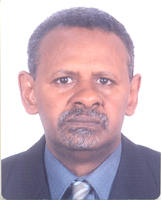Scientific Program
Keynote Session:
A PHP Error was encountered
Severity: 8192
Message: trim(): Passing null to parameter #1 ($string) of type string is deprecated
Filename: pastconference/past-program-schedule.php
Line Number: 239
Backtrace:
File: /efsdata/meetingsint-com/application/views/pastconference/past-program-schedule.php
Line: 239
Function: trim
File: /efsdata/meetingsint-com/application/controllers/Pastconference.php
Line: 128
Function: view
File: /efsdata/meetingsint-com/index.php
Line: 317
Function: require_once
Title: Construction of vertical boreholes for closed loop heat pump systems: Geoexchanger System for Buildings Heating and Cooling
Biography:
Abdeen Mustafa Omer (BSc, MSc, PhD) is an Associate Researcher at Energy Research Institute (ERI). He obtained both his PhD degree in the Built Environment and Master of Philosophy degree in Renewable Energy Technologies from the University of Nottingham. He is qualified Mechanical Engineer with a proven track record within the water industry and renewable energy technologies. He has been graduated from University of El Menoufia, Egypt, BSc in Mechanical Engineering. His previous experience involved being a member of the research team at the National Council for Research/Energy Research Institute in Sudan and working director of research and development for National Water Equipment Manufacturing Co. Ltd., Sudan. He has been listed in the book WHO’S WHO in the World 2005, 2006, 2007 and 2010. He has published over 300 papers in peer-reviewed journals, 200 review articles, 7 books and 150 chapters in books.
Abstract:
Geothermal heat pumps (GSHPs), or direct expansion (DX) ground source heat pumps, are a highly efficient renewable energy technology, which uses the earth, groundwater or surface water as a heat source when operating in heating mode or as a heat sink when operating in a cooling mode. It is receiving increasing interest because of its potential to decrease primary energy consumption and thus reduce emissions of the greenhouse gases (GHGs). The main concept of this technology is that it uses the lower temperature of the ground (approximately <32°C), which remains relatively stable throughout the year, to provide space heating, cooling and domestic hot water inside the building area. The main goal of this study was to stimulate the uptake of the GSHPs. Recent attempts to stimulate alternative energy sources for heating and cooling of buildings have emphasised the utilisation of the ambient energy from ground source and other renewable energy sources. The purpose of this study, however, was to examine the means of reducing of energy consumption in buildings, identifying GSHPs as an environmental friendly technology able to provide efficient utilisation of energy in the buildings sector, promoting the use of GSHPs applications as an optimum means of heating and cooling, and presenting typical applications and recent advances of the DX GSHPs. The study highlighted the potential energy saving that could be achieved through the use of ground energy sources. It also focused on the optimisation and improvement of the operation conditions of the heat cycle and performance of the DX GSHP. It is concluded that the direct expansion of the GSHP, combined with the ground heat exchanger in foundation piles and the seasonal thermal energy storage from solar thermal collectors, is extendable to more comprehensive applications.


